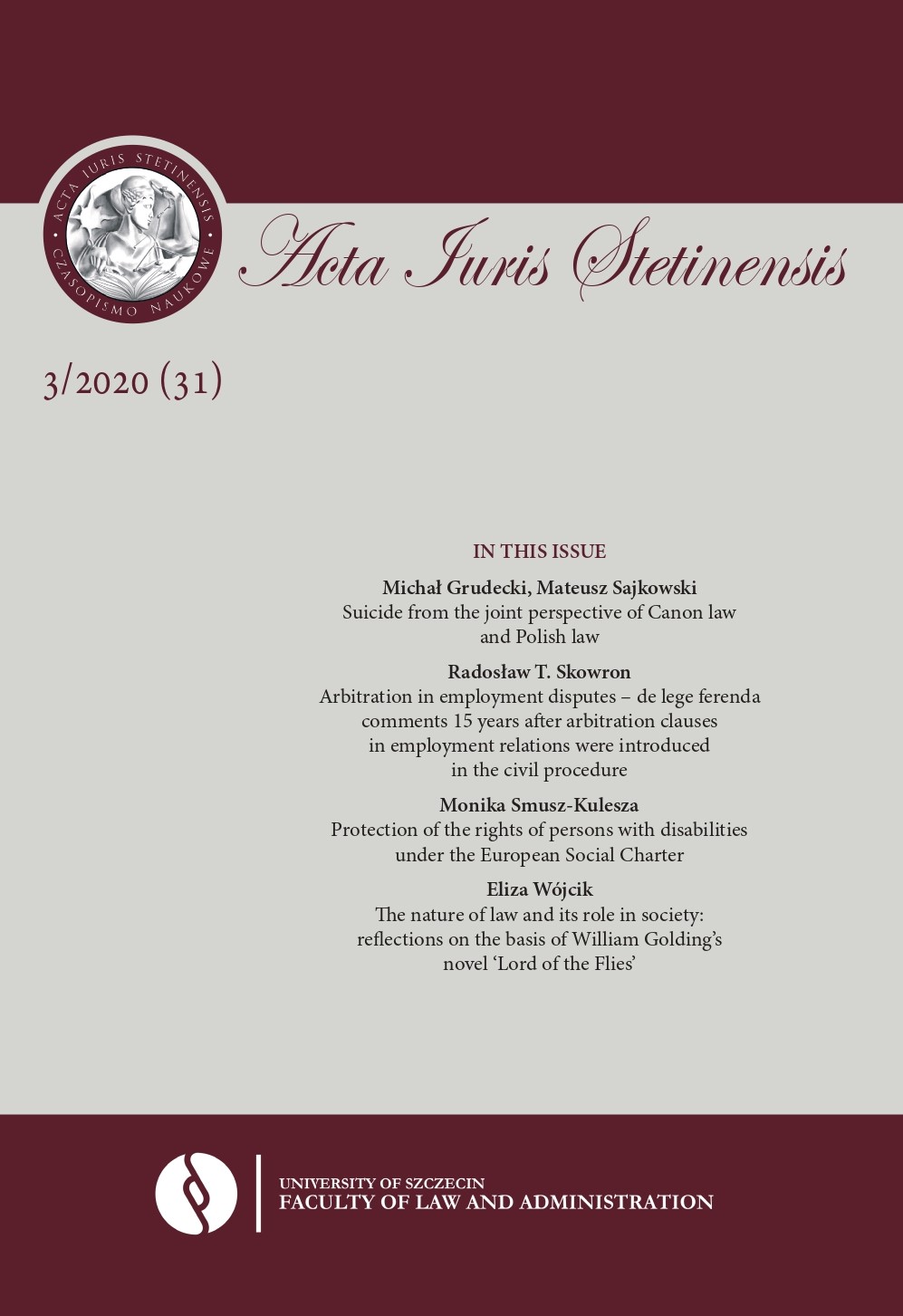Intercountry adoption in Polish family law
Intercountry adoption in Polish family law
Author(s): Katarzyna KamińskaSubject(s): Law, Constitution, Jurisprudence, Criminal Law, Civil Law, Human Rights and Humanitarian Law, Sociology, Family and social welfare, EU-Legislation, Comparative Law
Published by: Wydawnictwo Naukowe Uniwersytetu Szczecińskiego
Keywords: intercountry adoption; child’s welfare; adoptee; principle of subsidiarity; adopter
Summary/Abstract: The objective of this article is to present the intercountry adoption institutions in Polish family law. The objective is achieved by analysing the term ‘adoption’ by tracing it back to its origins in Imperium Romanum. Particular attention was paid to the recent amendment to the Penal Code, based on which the legal definition of the term ‘adoption’ was introduced (which is not the case of the Family and Guardianship Code) and to the differences between the terms ‘intercountry adoption’ and ‘foreign adoption’. The article includes the analysis of Article 1142 of the Family and Guardianship Code and the essence of the intercountry adoption principle of subsidiarity. The purpose of the study was to show technical and organisational issues related to the concept of intercountry adoption, such as pre-adoption period or ‘eligibility’ of potential adopters. One of the conclusions was that the citizenship of the adopter does not determine the international type of adoption, but his/her place of residence outside Poland. Certain international legal documents were reviewed to see how the adoptee’s welfare is protected under international law and to outline the genesis of the regulations in Article 1142 of the Family and Guardianship Code. The author’s aim is to show the circumstances favourable to the adoption of a child by a foreign couple. At this point, it should be stated that the child’s best interest should always remain the most important condition. Furthermore, when ruling in an adoption case, the court should protect the child’s interests, but also pay attention to the regulations concerning the continuity of the child’s upbringing as well as its ethnic, religious, cultural and linguistic identity. The above is related to the contemporary issue of adoption by homosexual couples. Countries, such as Poland, which do not allow adoption by homosexual couples may challenge the eligibility of candidates on the grounds of infringement of fundamental rules of the Polish legal order. Furthermore, the article includes statistical data concerning intercountry adoption. Currently, the number of intercountry adoptions decreases not only in Poland, but worldwide. In Poland, it may be caused by the tightening of the eligibility criteria for adopters and adoptees with respect to intercountry adoptions and reduction in the number of centres authorised to effect such adoptions. In the last part of the study, the author developed the argument that the issues of intercountry adoption are part of the global problems related to poverty and inequality.
Journal: Acta Iuris Stetinensis
- Issue Year: 2020
- Issue No: 31 (3)
- Page Range: 41-61
- Page Count: 21
- Language: English

